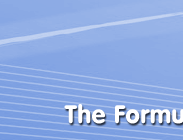      |
|
Contact us at: sooddram@gmail.com |
Achieving National Reconciliation, Peace & The 13A
Removing the impediments in the 13th amendment is imperative to achieve national reconciliation and peace
Territorial integration may be achieved by the armed forces, but national unity of communities can be achieved only by the appropriate political process. Absence of war here indicates only the silence of guns and not the attainment of sustainable peace. De-communalized nation, democratized political system and demilitarized State are imperative to rightly put Sri Lankan political economy in a progressive path through which Sri Lanka can achieve true independence and sustainable development. Majoritarian arrogance and ambitions have thrown this country into the orbit of political vicious circle that persistently enlarges the crisis, chaos and conflicts. Sri Lanka is a multi-national country which has been divided ethnically, religiously and regionally not by the actions of the common people but by the power hungry politicians. Divisive and destructive political leaders endangered and alienated the minority nationalities and deceived the majority nationality by promoting the politics of Sinhala hegemony versus Tamil sectarianism. Unity of Sri Lanka cannot be achieved by the compulsions of All Powerful hegemonic leadership but by honest compassion, true conciliation and mutual consensus.
It is well known that the Constitution of Sri Lanka of 1978 was made by Mr. JR Jeyewardane with the sole purpose of making himself His Majesty of All Powerful. Accordingly, he inserted effective provisions and protections for him to act freely with full immunities, converted all governmental institutions in order to direct in support of his whims and fancies and facilitated himself to use all the resources of the State at his personal will. To democratize the existing Constitution, the proposed amendments should be made with clear objectives that every amendment to the Constitution would completely remove the Authoritarianism- based-structures of the Constitution.
There is a widespread urge in Sri Lanka that the existing Constitution should be replaced by a reformed new Constitution that shall ensure all human and fundamental rights to all the people, social justice, political freedoms, economic equities, truly functioning democratic political system, independency of judiciary, rule of law and so on. Given the fact that the present political environment and formation of the present government in power is not appropriate to adopt a new constitution, the proposed amendments to the existing Constitution should include the provisions to remove all existing provisions that were and could be used as loopholes to unanswerably rule the State, unaccountably use the State resources and unquestionably reign the people.
Eradication of armed LTTE is not equivalent to the solution or settlement of the ethnic issues. Ethnic conflict in Sri Lanka entered into the international arena in 1983 and still is in serious concerns of the various international communities, which are, in different context, have interests in Sri Lankan resources and its location. Therefore, people who have illusory mind holding that the ethnic problem of Sri Lanka is always an internal matter are either misunderstood the reality or deliberately attempting to deceive the concerned sections. However, it can be resolved internally if the Sinhala leaders of major political parties have a united will and thereby the residual matters may be contained to become part of the internal matters of Sri Lanka.
There is an urgency to resolve the problem reasonably as early as possible before it takes another dimension. It is a historical opportunity that has made the presently emerged unity of major political parties of all communities. To achieve such a situation again in Sri Lanka, the country has to undergo again through another set of serious national crisis inflicting countless deaths of people, destructions of multi-billion worth of properties and dilapidation of all democratic institutions. I, therefore request the law makers to include the amendments in respect of the 13th Amendment (13A) also so that the Provincial Councils (PCs) shall serve to the basic aspirations and socio-economic developments of the people of their respective regions.
Many may argue that the 100 days programme does not include anything about devolution of powers to the PCs or to find any political solution to the ethnic problem. Reason for such non-inclusion is well known among the political circles. Some may say that the present coalition in power is a delicate alliance that includes anti-devolution forces. Managing the extremist forces is a matter of concerns of the majority people – supported – moderate political leaders. Urgent Need of the hour for achieving the desired national reconciliation and social harmony is the devolution of powers to the PCs in compliance with the basics of the 13A so that the people and socio-political forces of the respective provinces could feel that their PCs are substantially useful.
I do not want here to debate as to whether the powers devolved to the PCs are sufficient or insufficient and therefore do not submit any suggestion requesting any major correction to be made in the 13A in order to provide more powers to the PCs. However, it is to be noted that as long as the existing major defects in the 13A sustain in so much as its own clauses disable its body as a whole from functioning constructively, the devolutionary process shall continue to be in suspension and the existence of the PCs is a sham deluding the demand of reasonable political solution to the ethnic conflict persisting in Sri Lanka for last more than 85 years. It is therefore imperative, to rectify the 13A in order to make the PCs effectively and efficiently workable and useful to the people, by removing and replacing such provisions which are contradictory to the basic objectives of the establishment of the PCs. Since the Constitution is the supreme and not either the President or the Central Government, the progressive functioning and sustainability of the PCs should not be left with the whims and fancies of the President or the Central Government of Sri Lanka (CGSL) but be ensured unequivocally by the legal provisions enshrined in the Constitution.
I humbly here submit in brief the principles to be considered for the amendments to be made in respect of the 13A, to the consideration of the Constitutional Experts presently engaged in drafting the Amendment Proposal. The Proposed amendments should ensure:
1. GOVERNORS:-
- That the President should not appoint any serving public servant to the post of Governor.
- That the Governors should not act in politics when they are in office.
- That the PCs should be under the Governor’s rule during the election for the provincial councilors from the date of nomination to the date of new Chief Minister (CM) ’s swearing in.
- That during the Governor’s rule under emergency or otherwise, the Governors may act on the advice of an advisory body consisting legal and administrative experts appointed by the President and in any event, the CGSL or any of its ministers shall not interfere directly with or take over the executive powers of the PCs.
- That only the Constitution should require the Governors to act at their discretion in any of their functions and such discretionary functions should have been provided not impliedly but expressly and specifically by the Constitution.
- That even if any part of the Constitutional provision requires the Governors, without specifying their discretion, to act in any specified function in any matter substantially or incidentally relating to the executive functions and powers of the PCs including the business of the Legislative Assembly, all such powers should be exercised only in aid and in accordance with the advice of the CMs or the Council of Ministers (CoMs) of their respective PCs.
2. PROVINCIAL COUNCILS ACT OF 1987:-
- That the Governors should not engage themselves directly in any executive functions as regards to which they are not required by the Constitution or by any statute of the respective PC to act at their discretion.
- That since either the 13A or any other part of the Constitution has not provided so far any executive function to be acted by the Governors at their discretion, the Constitution must make sure that the executive powers in functions, specified in the Provincial Councils Act of 1987 (PCA of 1987) for the Governors to act, should be exercised in compliance with the first part of the Art. 154C and F of the Constitution and not otherwise in any manner. Governors or any administrator should not be allowed to interpret the Constitutional provisions at their own understanding or desire.
- That the PCA of 1987 should be replaced by a new act drafted clearly in consistent to the provisions of the 13A and in order to remove the unnecessary interferences of the CGSL
3. POWERS AND RIGHTS OF THE PCs:-
- That it must be made clear that non implementation of any provision of the Constitution also is unconstitutional. Neither the President nor the CGSL has any right or power to deny any right or power provided by the Constitution to the PCs, without the reasons defined in the Constitution. Hence, the Constitution must have the provision for making the President and the CGSL liable to uphold each and every provision of the Constitution and to do their duties accordingly in order to ensure all the provisions of the Constitutions are implemented fully and properly and also to make sure that all the institutions and branches of the State also duly function in compliance to the Constitution.
4. CONCURRENT LIST:-
- That the ambiguities regarding the “Concurrent List (CL)” should be removed by constitutionally specified provisions clearly distributing as to the executive powers on the subjects listed in the CL and as such powers are on which subjects necessarily reserved to the CGSL and on which subjects completely left to the Provincial Executives and also on which subjects both are allowed to act.
- That the legislative superiority of the Parliament over the “concurrent subjects” on which the PCs have the executive powers should be defined so that the CGSL shall not discreetly or otherwise acquire such executive powers of the PCs.
5. FINANCE TO THE PCs:-
- That the distribution of a certain percentage of Income Tax collected by the CGSL to the PCs should be guaranteed by the Constitution
- That the personnel and properties of the departments collecting the revenues mentioned in the Provincial List should be transferred to the PCs.
- That the National Finance Commission (NFC) should be constituted and commence its functions with immediate effect and the Constitution should ensure permanent existence of the NFC in all circumstances.
- That the Turn Over Taxes (TOT) on whole sale and retail sales should be restored as it was originally in the government revenue when the 13A was enacted by the Parliament. Maximum and minimum limit of such taxations and the specifically exempted items from such taxations should be declared only by the Budget of the CGSL. The exceptional part in the item No.36(1) of the Provincial List should not be misinterpreted as it allows the CGSL to take away the revenue of the TOT. The VAT or GST is not at all a new taxation but a reformatted TOT only. All changes made through introduction of VAT, GST and so on by sucking the incomes from the TOT after the 13A came in to force should not be allowed to make any depletion in the mandatory revenue of the PCs and therefore all such changes made after 1988 should be treated as part of the TOT revenue.
- That there are more than 20 revenue items marked in the Provincial List of the 13A for the PCs to determine and collect and those are at present determined and collected by the CGSL. These collections should not be treated as a part of the revenue of the CGSL but mandatorily to be transferred to the Provincial Consolidated Fund (PCF).
5. Provincial Police:
- That Constitutionally PCs are charged with the responsibilities of law and order, collection of certain taxes and fees, controlling and regulating duties in number of affairs. These duties cannot be discharged without the aid of the police institution and personnel. Therefore, the devolution of police is a must and the denial is unconstitutional.
- That the identity of a policeperson is established not by the kind of weapon he carries but by the uniform he wears. What type of uniform a policeperson has to wear and what kind of weapon such policeperson should carry are decided not by PCs but by the CGSL. Therefore delaying the devolution of police power is an unjustifiable act.
- That the appointments of Provincial Police Commission and the Deputy Inspector General (DIG) of the province should be made in accordance with the Constitution and the police cadres of all ranks should be deputed to function accordingly.That the DIGs should begin to function in accordance with the clause 11(1) of the Appendix to the Provincial List in the 13A. The said clause is the crucial one in respect of the devolution of the police powers to the PCs to preserve the law and order, protect the peace and internal security and prevent any violation of any law. So, such functions emphasize the need of various inner institutions in the Provincial Police. Therefore, the said clause 11(1) needs to be further clarified with additional sub-clauses and necessary explanatory provisos.
6. PUBLIC SERVICE OF THE PCs:
- That the Chief Secretary, other Secretaries to the provincial ministries, Directors of the departments and Commissioners of the statutory authorities functioning under the PCs and the Divisional Secretaries (Assistant Government Agents) should be appointed by the Governor on the advice of the Council of Ministers, from the Sri Lanka Administrative Service (SLAS) officers deputed or seconded to serve under the PCs’.
- That the SLAS officer’s deputed or seconded to the PCs must function as the cadres of the PCs and their transfers back to the Central Government administration should be made only with the consent of the respective Chief Minister and the particular officers.
- That a permanently workable solution in respect of the dispute as to how the Government Agents can function under the two masters at a time is yet to be determined appropriately or otherwise alternatively an equivalent post should be established by the PCs to head the provincial administration at the district level.
- That the rules and regulations to the PCs’ administration at all levels should be made by the Governors on the advice of the respective Council of Ministers, in line with the general administrative guidelines made by the National Public Service Commission or followed by the Central Government.
- That the power of recruitment of personnel to the provincial services and the power of promotion and dismissal of such personnel should be vested with the Provincial Council of Ministers (PCoM) provided such actions are scrutinized by the Provincial Public Service Commission (PPSC) as to whether such actions are done justifiably and in compliance with the rules and regulations of the public services. The PPSC should function in such matters in accordance with the guidelines made by the Governor on the advice of the Council of Ministers. However, the decision as to where such servants to be posted and in respect of suspending and taking disciplinary action on any of such servants from the service in case of necessity should be made by the CM or the PCoM, because the collective responsibility of the provincial administration is constitutionally burdened on the PCoM.
- That it is ridiculous establishing a parallel government body at provincial level in the name of PPSC to hold the full power to provide employment to the Provincial Public Service (PPS) and authorities over the provincial public servants in the matters of appointments, disciplines, transfers, disciplinary actions, suspensions and dismissals whereas the PCs are burdened with only the responsibilities to manage, direct and look after such servants and thereby the PCs are forced to administer the provincial affairs only at the desire of the such public servants, over whom the PCs have no authority.
- That the PPSC may be vested with certain powers to function independently as a Tribunal to decide the matters in disputes regarding appointments, transfers, disciplinary actions, suspensions and dismissal of provincial public servants. It also can function as an advisor body to the Provincial Executives in the administrative matters.
- That there should not be any Ministry at the Central Government in the name and style of subjects that have been fully devolved to the PCs by the Constitution and also in the name of the subjects left by the law of the Parliament to the executive functions of the PCs.
- That the confusions prevailing in the Constitution in respect of the term ”Provincial Council” should be cleared as to where it means “Provincial Legislative Assembly”, where it means Provincial Council of Ministers and where it means “Provincial Administrative Bureaucracy”. and
- The interpretation of the terms like “National Policy”, “National Programme”, “National Importance”, “National Interests”, “National Highways”, “National Schools”, “Special Purposes Hospitals”, “National Service”, and “National Security” should be provided in the Constitution so that the Parliament or the Central Government shall not encroach into the legislative or executive spheres of the PCs.
Finally, I wish to suggest to the Constitutional Amendment Makers to include an independent commission called “DEVOLUTION COMMISSION (DC)” to be appointed by the proposed Constitutional Council. Although the Supreme Court is the ultimate forum to interpret the provisions of the Constitution, everyone for everything should not and cannot approach the Supreme Court to get the relief or correct position. Particularly, since the issues regarding the devolution are politically sensitive it should be resolved and settled as much as possible at a closed-door forum that comprises impartial and experienced experts in judicial and administrative fields. The proposed DC may function as an “advisor body” to the Centre and the PCs in getting proper understanding of the Constitutional provisions and also function as a “Dispute Clearing House” between the Centre and the PCs and also between the PCs.
உனக்கு
நாடு இல்லை என்றவனைவிட
நமக்கு நாடே இல்லை
என்றவனால்தான்
நான் எனது நாட்டை
விட்டு விரட்டப்பட்டேன்.......

ராஜினி
திரணகம
MBBS(Srilanka)
Phd(Liverpool,
UK)
'அதிர்ச்சி
ஏற்படுத்தும்
சாமர்த்தியம்
விடுதலைப்புலிகளின்
வலிமை மிகுந்த
ஆயுதமாகும்.’ விடுதலைப்புலிகளுடன்
நட்பு பூணுவது
என்பது வினோதமான
சுய தம்பட்டம்
அடிக்கும் விவகாரமே.
விடுதலைப்புலிகளின்
அழைப்பிற்கு உடனே
செவிமடுத்து, மாதக்கணக்கில்
அவர்களின் குழுக்களில்
இருந்து ஆலோசனை
வழங்கி, கடிதங்கள்
வரைந்து, கூட்டங்களில்
பேசித்திரிந்து,
அவர்களுக்கு அடிவருடிகளாக
இருந்தவர்கள்மீது
கூட சூசகமான எச்சரிக்கைகள்,
காலப்போக்கில்
அவர்கள்மீது சந்தேகம்
கொண்டு விடப்பட்டன.........'
(முறிந்த
பனை நூலில் இருந்து)
(இந்
நூலை எழுதிய ராஜினி
திரணகம விடுதலைப்
புலிகளின் புலனாய்வுப்
பிரிவின் முக்கிய
உறுப்பினரான பொஸ்கோ
என்பவரால் 21-9-1989 அன்று
யாழ் பல்கலைக்கழக
வாசலில் வைத்து
சுட்டு கொல்லப்பட்டார்)
Its
capacity to shock was one of the L.T.T.E. smost potent weapons. Friendship with
the L.T.T.E. was a strange and
self-flattering affair.In the course of the coming days dire hints were dropped
for the benefit of several old friends who had for months sat on committees,
given advice, drafted latters, addressed meetings and had placed themselves at
the L.T.T.E.’s beck and call.
From: Broken Palmyra
வடபுலத்
தலமையின் வடஅமெரிக்க
விஜயம்
(சாகரன்)
புலிகளின்
முக்கிய புள்ளி
ஒருவரின் வாக்கு
மூலம்
பிரபாகரனுடன் இறுதி வரை இருந்து முள்ளிவாய்கால் இறுதி சங்காரத்தில் தப்பியவரின் வாக்குமூலம்
திமுக, அதிமுக, தமிழக மக்கள் இவர்களில் வெல்லப் போவது யார்?
(சாகரன்)
தங்கி நிற்க தனி மரம் தேவை! தோப்பு அல்ல!!
(சாகரன்)
(சாகரன்)
வெல்லப்போவது
யார்.....? பாராளுமன்றத்
தேர்தல் 2010
(சாகரன்)
பாராளுமன்றத்
தேர்தல் 2010
தேர்தல்
விஞ்ஞாபனம் - பத்மநாபா
ஈழமக்கள் புரட்சிகர
விடுதலை முன்னணி
1990
முதல் 2009 வரை அட்டைகளின்
(புலிகளின்) ஆட்சியில்......
(fpNwrpad;> ehthe;Jiw)
சமரனின்
ஒரு கைதியின் வரலாறு
'ஆயுதங்கள்
மேல் காதல் கொண்ட
மனநோயாளிகள்.'
வெகு விரைவில்...
மீசை
வைச்ச சிங்களவனும்
ஆசை வைச்ச தமிழனும்
(சாகரன்)
இலங்கையில்
'இராணுவ'
ஆட்சி வேண்டி நிற்கும்
மேற்குலகம், துணை செய்யக்
காத்திருக்கும்;
சரத் பொன்சேகா
கூட்டம்
(சாகரன்)
எமது தெரிவு
எவ்வாறு அமைய வேண்டும்?
பத்மநாபா
ஈபிஆர்எல்எவ்
ஜனாதிபதித்
தேர்தல்
ஆணை இட்ட
அதிபர் 'கை', வேட்டு
வைத்த ஜெனரல்
'துப்பாக்கி' ..... யார் வெல்வார்கள்?
(சாகரன்)
சம்பந்தரே!
உங்களிடம் சில
சந்தேகங்கள்
(சேகர்)
(m. tujuh[g;ngUkhs;)
தொடரும்
60 வருடகால காட்டிக்
கொடுப்பு
ஜனாதிபதித்
தேர்தலில் தமிழ்
மக்கள் பாடம் புகட்டுவார்களா?
(சாகரன்)
ஜனவரி இருபத்தாறு!
விரும்பியோ
விரும்பாமலோ இரு
கட்சிகளுக்குள்
ஒன்றை தமிழ் பேசும்
மக்கள் தேர்ந்தெடுக்க
வேண்டும்.....?
(மோகன்)
2009 விடைபெறுகின்றது!
2010 வரவேற்கின்றது!!
'ஈழத் தமிழ்
பேசும் மக்கள்
மத்தியில் பாசிசத்தின்
உதிர்வும், ஜனநாயகத்தின்
எழுச்சியும்'
(சாகரன்)
மகிந்த ராஜபக்ஷ
& சரத் பொன்சேகா.
(யஹியா
வாஸித்)
கூத்தமைப்பு
கூத்தாடிகளும்
மாற்று தமிழ் அரசியல்
தலைமைகளும்!
(சதா. ஜீ.)
தமிழ்
பேசும் மக்களின்
புதிய அரசியல்
தலைமை
மீண்டும்
திரும்பும் 35 வருடகால
அரசியல் சுழற்சி!
தமிழ் பேசும் மக்களுக்கு
விடிவு கிட்டுமா?
(சாகரன்)
கப்பலோட்டிய
தமிழனும், அகதி
(கப்பல்) தமிழனும்
(சாகரன்)
சூரிச்
மகாநாடு
(பூட்டிய)
இருட்டு அறையில்
கறுப்பு பூனையை
தேடும் முயற்சி
(சாகரன்)
பிரிவோம்!
சந்திப்போம்!!
மீண்டும் சந்திப்போம்!
பிரிவோம்!!
(மோகன்)
தமிழ்
தேசிய கூட்டமைப்புடன்
உறவு
பாம்புக்கு
பால் வார்க்கும்
பழிச் செயல்
(சாகரன்)
இலங்கை
அரசின் முதல் கோணல்
முற்றும் கோணலாக
மாறும் அபாயம்
(சாகரன்)
ஈழ விடுலைப்
போராட்டமும், ஊடகத்துறை
தர்மமும்
(சாகரன்)
(அ.வரதராஜப்பெருமாள்)
மலையகம்
தந்த பாடம்
வடக்கு
கிழக்கு மக்கள்
கற்றுக்கொள்வார்களா?
(சாகரன்)
ஒரு பிரளயம்
கடந்து ஒரு யுகம்
முடிந்தது போல்
சம்பவங்கள் நடந்து
முடிந்துள்ளன.!
(அ.வரதராஜப்பெருமாள்)
அமைதி சமாதானம் ஜனநாயகம்
www.sooddram.com